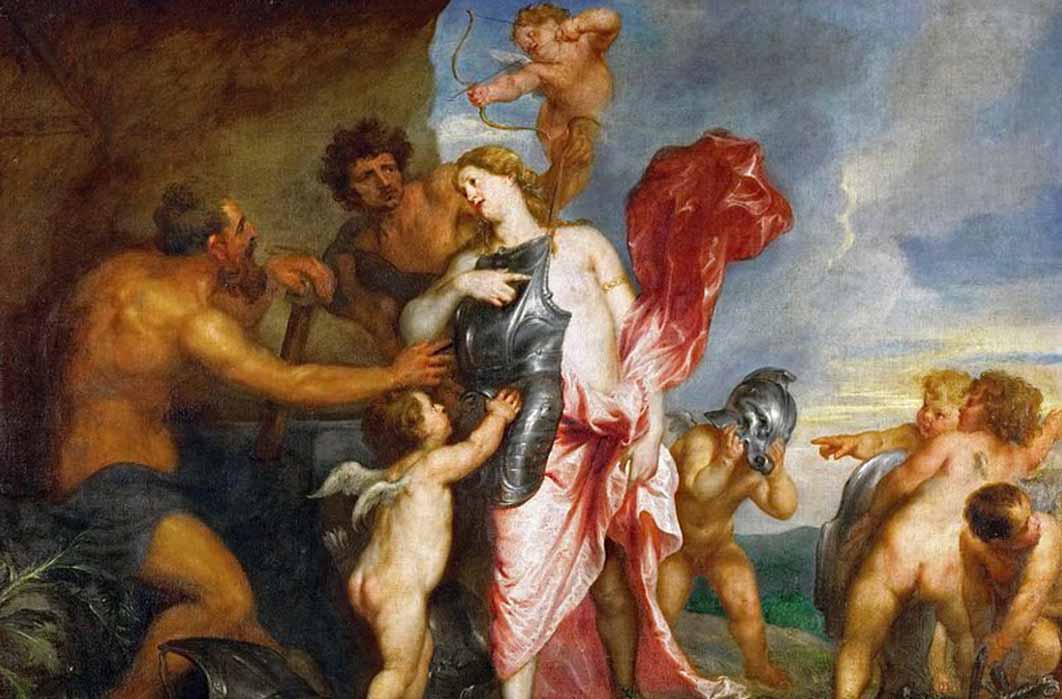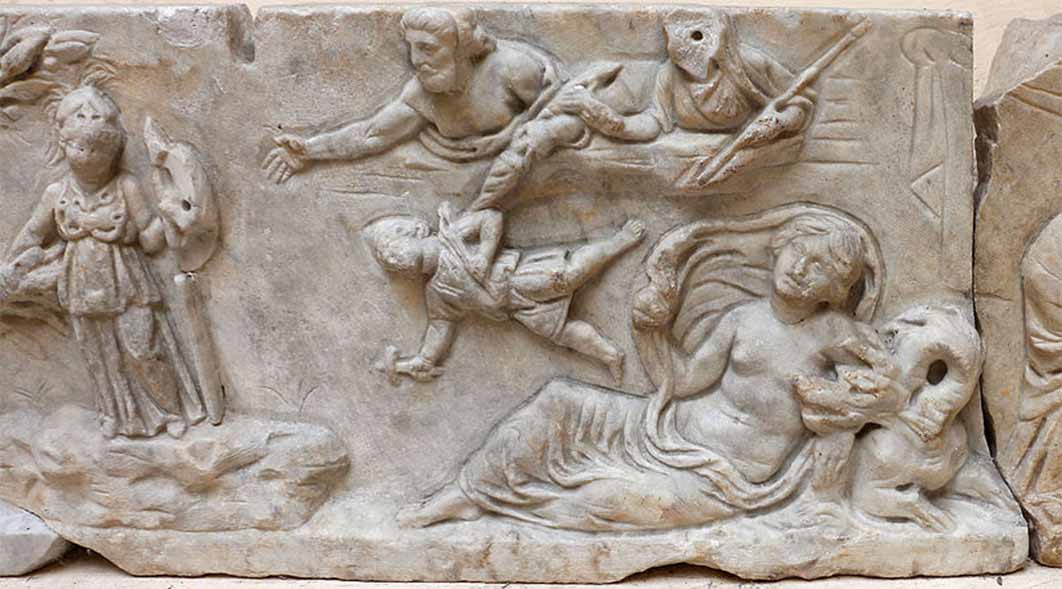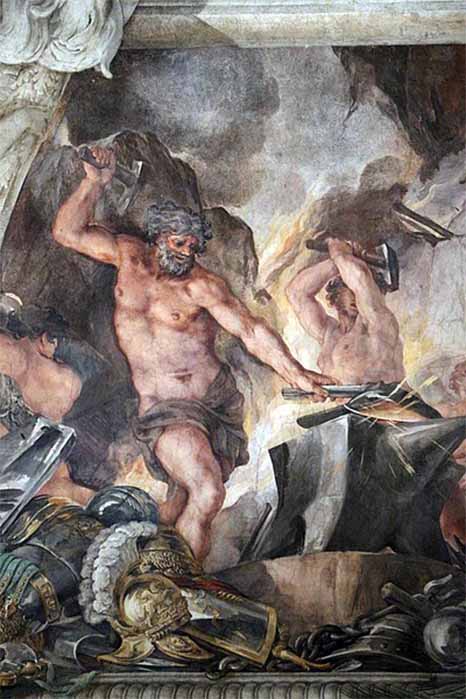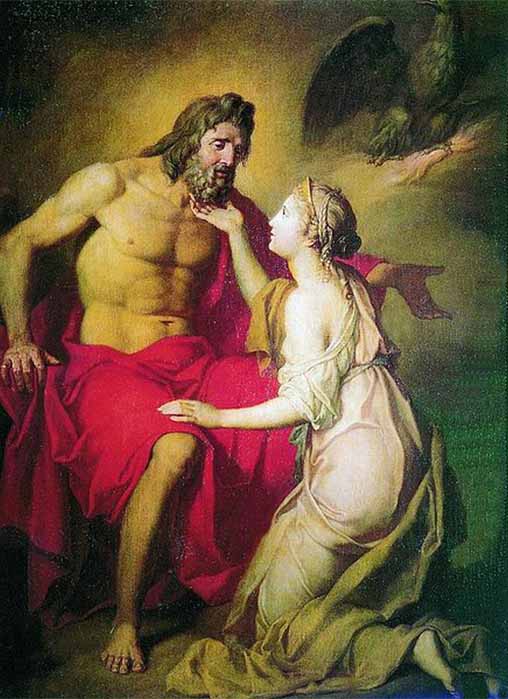
Hephaestus And Thetis Bound In Their Mortal Suffering
Infuriated that her husband Zeus gave birth to Athena on his own, Hera, the Queen of Heaven, impregnated herself to have a child independent of Zeus, and thus she gave birth to Hephaestus. Hephaestus, divine though he was, was not a handsome boy, and both his feet were weak. Hera was ashamed of him. The mere presence of Hephaestus was a permanent reminder of the goddess' precarious position in the quagmire relating to her husband, for her defeat would be eternally inscribed in her son's deformed legs. So, she flung him from Olympus into the water. Throughout the corpus of Greek myth, Hephaestus’ lameness becomes a key part of his iconography, and it is central to his role in Homer’s Iliad.

Ancient Roman reliefs of Hera casting Hephaestus from Olympus and Thetis reclining. Museo Ostiense Ostia Antica (Public Domain)
After falling for a day and landing in Lemnos, Hephaestus was found by the sea nymph Thetis, daughter of the ancient sea god Nereus, and Eurynome, the daughter of Oceanus, both of whom proceeded to act as his surrogate mothers for the next nine years. Hephaestus built his forge on the island's volcano, where he lived in an imperishable shining bronze mansion and produced his masterworks of metallurgy. Hephaestus founded the city of Hephaistia on the island of Lemnos, which bore his name and housed a temple in his honor. The harbor at Mudros, which means "mass of molten metal," was one such location on the island that was associated with the deity and his craft.

Hephaestus in his forge, by Pietro da Cortona (1632) (Sailko/ CC BY-SA 3.0)
Hephaestus’ bond with Thetis
From this birth, Hephaestus would be no stranger to suffering. But his relationship with his two surrogate mothers proved to be a warm one. Eurynome was the mother of the Charites, the three goddesses of grace and beauty. Charis, one of Eurynome's daughters, later became Hephaestus' bride.
Hephaestus’ attachment to Thetis, who later became the mother of the great hero Achilles, inspired one of his finest inventions, the shield and armor of Achilles. In Book XVIII of the Iliad, Hephaestus relates his banishment to his wife when he says that Thetis “protected me when I suffered much at the time of my great fall by the will of my brazen-faced mother, who wished to hide me since I was lame.” Hephaestus describes Thetis as his savior after his very long fall, mentioning how painful the experience had been and how much more painful it would have been without her and Eurynome’s intervention.
- Mother and Child Reunion Of Thetis And Achilles
- How Did Greek God Hephaestus Score the Goddess of Love?
- Mount Olympus, Dwelling Place of the Gods: Myth vs Reality
Achilles fought for the Greeks in the Trojan War. Thetis, who had greatly helped Hephaestus in his time of need, is Achilles' mother. She beseeched Hephaestus to design the most magnificent armor for her son. This would be the most significant action of Hephaestus in the Iliad, and it is related at the close of the epic. One of the most well-known passages of the work, renders a detailed description of this shield, providing a comprehensive view of both the natural world and the wide variety of human activities. It is remarkable that these representations of real-world scenes were given so much attention and cumulatively, they represented an attempt to recreate the totality of human experiences.





